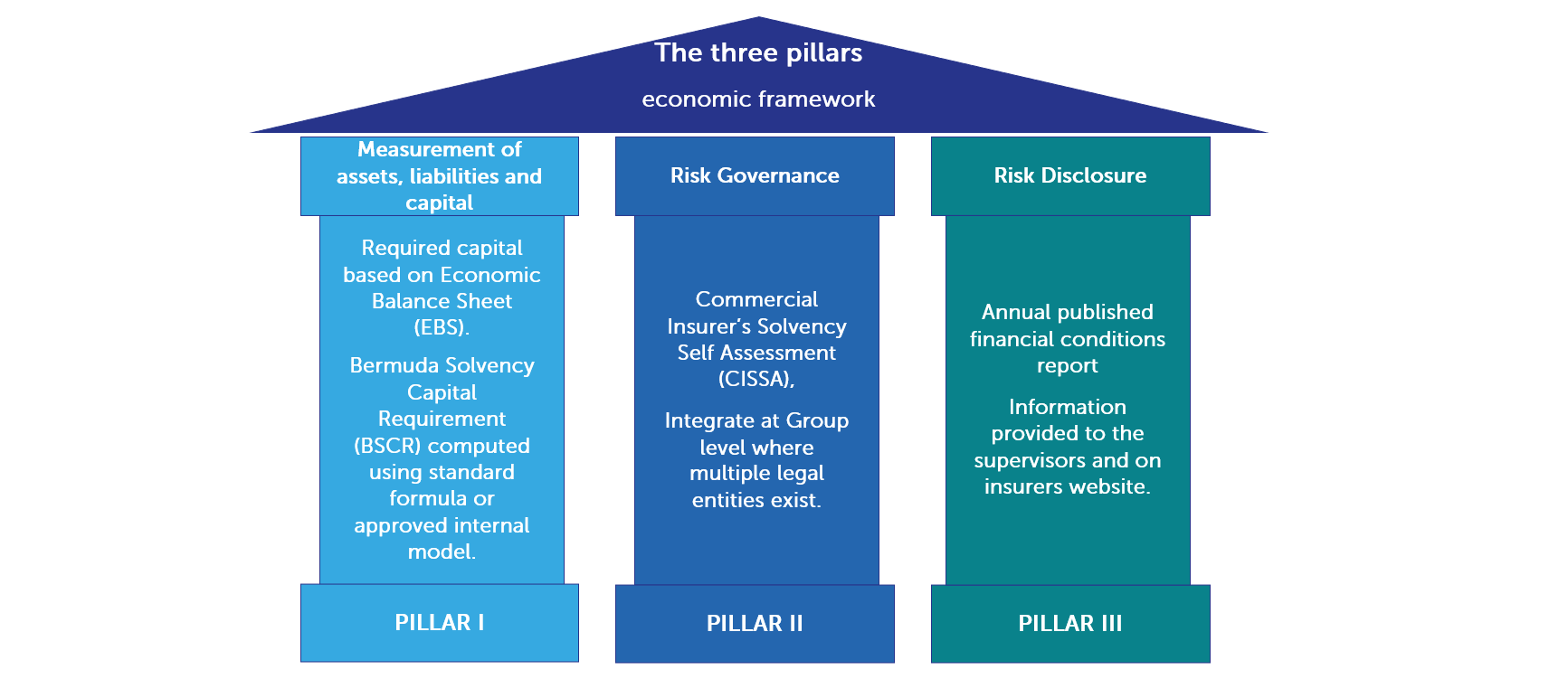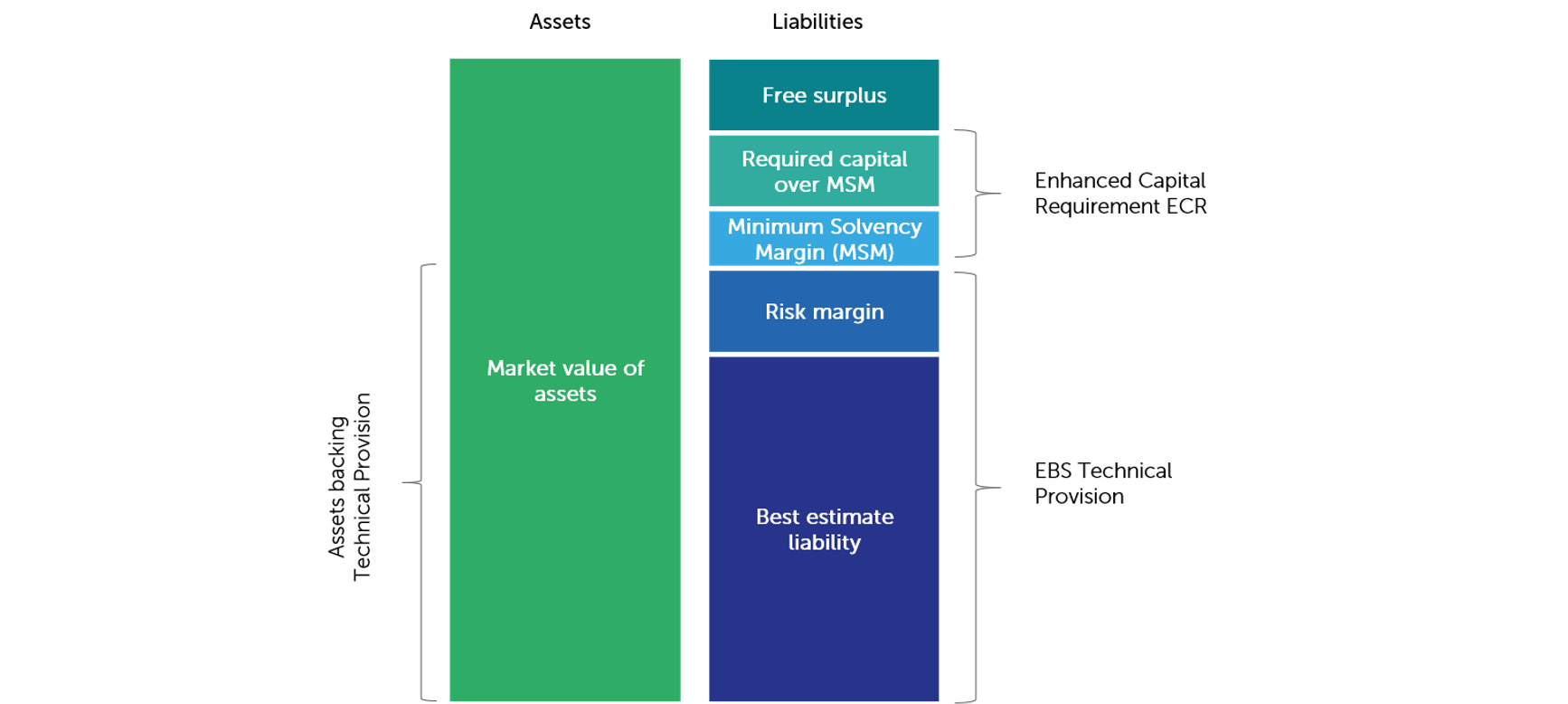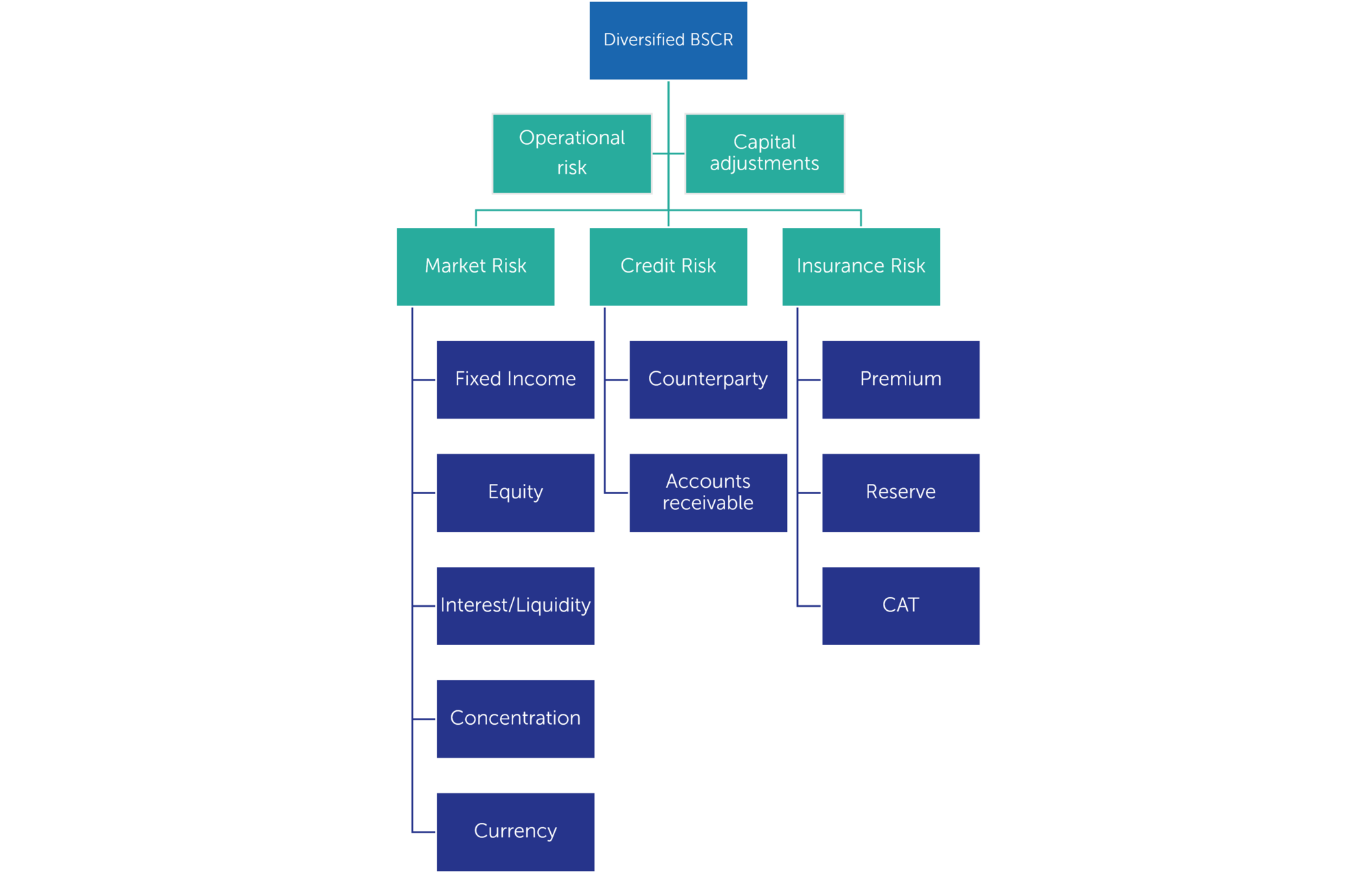BERMUDIAN REGULATIONS FOR (RE)INSURERS
The Bermuda Monetary Authority (the Authority, "BMA") oversees Bermudan commercial (re)insurers and (re)insurance groups. The BMA issued a statutory and prudential regime which achieved full equivalence with the European Solvency II regime, a feature currently achieved by only two jurisdictions in the world.
Finalyse has rich experience in Bermudan insurance regulations and offers you a comprehensive set of managed services and tailored solutions. Partner with Finalyse and let us take care of your compliance with BMA regulations.
How does Finalyse address your challenges?
Head of Actuarial Function:
Review of technical provisions for EBS, assessing appropriateness of actuarial methods, models and assumptions, data quality and providing an opinion on the CISSA.
Scenario-Based Approach:
Assistance in compliance with SBA requirements including SBA modelling, approval, liquidity reporting, reinvestment strategy and model governance.
Capital/CISSA/GSSA support:
Capital planning and optimisation, CISSA/GSSA projections and stresses, including climate risk scenarios (see also here). Filling out schedules and documentation and analysis of results.
Licensing:
Advise on BMA’s licensing requirements for new (re)insurers. Assistance in the submission of the application package. Implementation of the risk and actuarial framework, policies, standards, and procedures.
Approved Actuary / Loss Reserve Specialist:
Provide opinion on the adequacy of insurance reserves.
SAA support:
Specifying asset classes, defining objectives and constraints, forming capital market expectations, establishing asset class bandwidths, validating the optimal allocation, and optimizing the asset mix.
How does it work in practice?
The Authority is responsible for the licensing, supervision and regulation of financial institutions including those conducting deposit-taking, insurance, investment, and trust business in Bermuda.
The BMA has a Solvency II equivalence and has a similar three pillar approach.

Principles of Economic Balance Sheet (EBS):

Principles of Bermuda Solvency Capital Requirements (BSCR)

Key Features
- Finalyse leverages on our extensive experience in Bermudan regulations thanks to the numerous services it has provided to BMA-regulated insurers. We can assist you in receiving approval from BMA to apply favourable capital treatment for assets and liabilities using private or internal ratings, strategic or infrastructure equity treatment or company/group specific parameters.
- We offer expertise on both the asset and liability sides of the balance sheet, such as actuarial modelling and model validation, submission of BMA returns, recovery planning, capital modelling and capital treatment of exotic assets and liabilities.
- You can also fully outsource the various key functions or processes required by the BMA to Finalyse by appointing one of our senior experts satisfying BMA’s fit and proper requirements.

Francis is a Principal Consultant in charge of our insurance practice in Dublin. He has 15 years of experience within the life and non-life (re)insurance industry. His expertise covers the areas of financial reporting, prudential regulation, and actuarial modelling. Francis has worked in both industry and consulting with extensive exposure to Solvency II and BMA-regulated clients and a keen eye on new regulatory developments.

Frans is an actuary and Financial Risk Manager with international experience in the pensions and insurance sectors. He has been specialising in actuarial valuations (AXIS), financial and regulatory reporting (IAS19, US GAAP, IFRS2, IFRS17), regulatory reporting (IORP II, Solvency II, ICS, BMA), market risk management (ALM, SAA), climate change risk management and investment consulting.
Finalyse InsuranceFinalyse offers specialized consulting for insurance and pension sectors, focusing on risk management, actuarial modeling, and regulatory compliance. Their services include Solvency II support, IFRS 17 implementation, and climate risk assessments, ensuring robust frameworks and regulatory alignment for institutions. |

Our Insurance Services
Check out Finalyse Insurance services list that could help your business.
Our Insurance Leaders
Get to know the people behind our services, feel free to ask them any questions.
Client Cases
Read Finalyse client cases regarding our insurance service offer.
Insurance blog articles
Read Finalyse blog articles regarding our insurance service offer.
Trending Services
BMA Regulations
Designed to meet regulatory and strategic requirements of the Actuarial and Risk department
Solvency II
Designed to meet regulatory and strategic requirements of the Actuarial and Risk department.
Outsourced Function Services
Designed to provide cost-efficient and independent assurance to insurance and reinsurance undertakings
Finalyse BankingFinalyse leverages 35+ years of banking expertise to guide you through regulatory challenges with tailored risk solutions. |

Trending Services
AI Fairness Assessment
Designed to help your Risk Management (Validation/AI Team) department in complying with EU AI Act regulatory requirements
CRR3 Validation Toolkit
A tool for banks to validate the implementation of RWA calculations and be better prepared for CRR3 in 2025
FRTB
In 2025, FRTB will become the European norm for Pillar I market risk. Enhanced reporting requirements will also kick in at the start of the year. Are you on track?
Finalyse ValuationValuing complex products is both costly and demanding, requiring quality data, advanced models, and expert support. Finalyse Valuation Services are tailored to client needs, ensuring transparency and ongoing collaboration. Our experts analyse and reconcile counterparty prices to explain and document any differences. |

Trending Services
Independent valuation of OTC and structured products
Helping clients to reconcile price disputes
Value at Risk (VaR) Calculation Service
Save time reviewing the reports instead of producing them yourself
EMIR and SFTR Reporting Services
Helping institutions to cope with reporting-related requirements
CONSENSUS DATA
Be confident about your derivative values with holistic market data at hand
Finalyse PublicationsDiscover Finalyse writings, written for you by our experienced consultants, read whitepapers, our RegBrief and blog articles to stay ahead of the trends in the Banking, Insurance and Managed Services world |

Blog
Finalyse’s take on risk-mitigation techniques and the regulatory requirements that they address
Regulatory Brief
A regularly updated catalogue of key financial policy changes, focusing on risk management, reporting, governance, accounting, and trading
Materials
Read Finalyse whitepapers and research materials on trending subjects
Latest Blog Articles
Contents of a Recovery Plan: What European Insurers Can Learn From the Irish Experience (Part 2 of 2)
Contents of a Recovery Plan: What European Insurers Can Learn From the Irish Experience (Part 1 of 2)
Rethinking 'Risk-Free': Managing the Hidden Risks in Long- and Short-Term Insurance Liabilities
About FinalyseOur aim is to support our clients incorporating changes and innovations in valuation, risk and compliance. We share the ambition to contribute to a sustainable and resilient financial system. Facing these extraordinary challenges is what drives us every day. |

Finalyse CareersUnlock your potential with Finalyse: as risk management pioneers with over 35 years of experience, we provide advisory services and empower clients in making informed decisions. Our mission is to support them in adapting to changes and innovations, contributing to a sustainable and resilient financial system. |

Our Team
Get to know our diverse and multicultural teams, committed to bring new ideas
Why Finalyse
We combine growing fintech expertise, ownership, and a passion for tailored solutions to make a real impact
Career Path
Discover our three business lines and the expert teams delivering smart, reliable support


